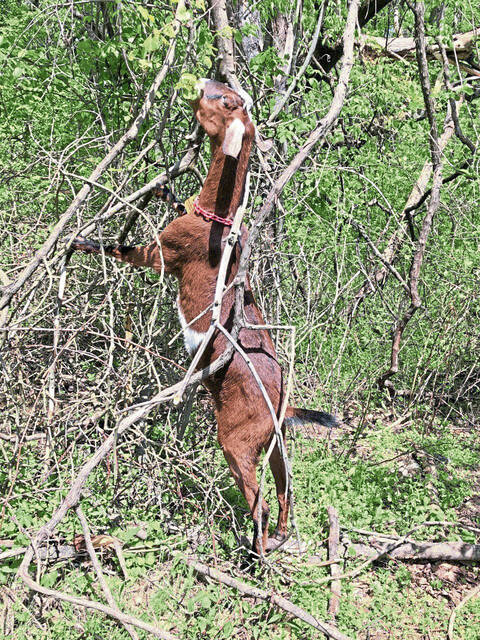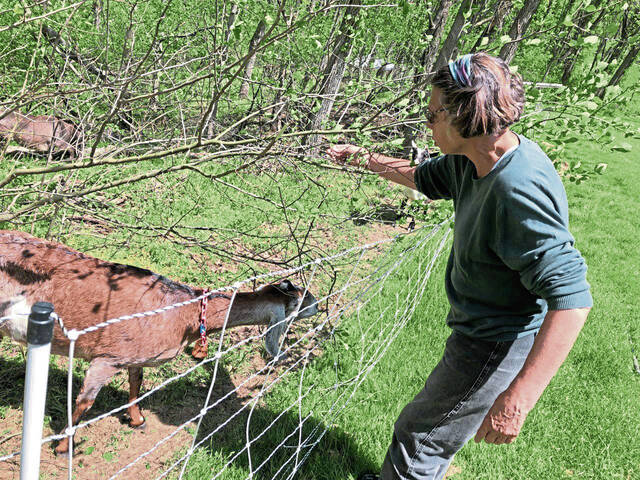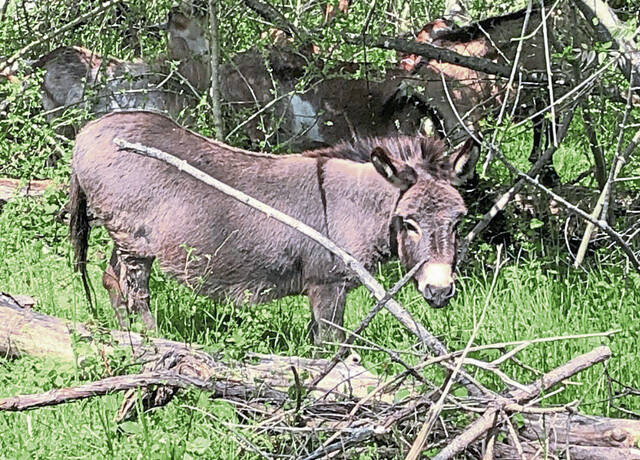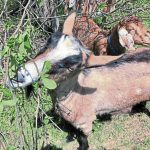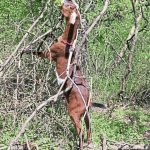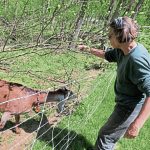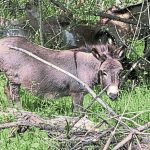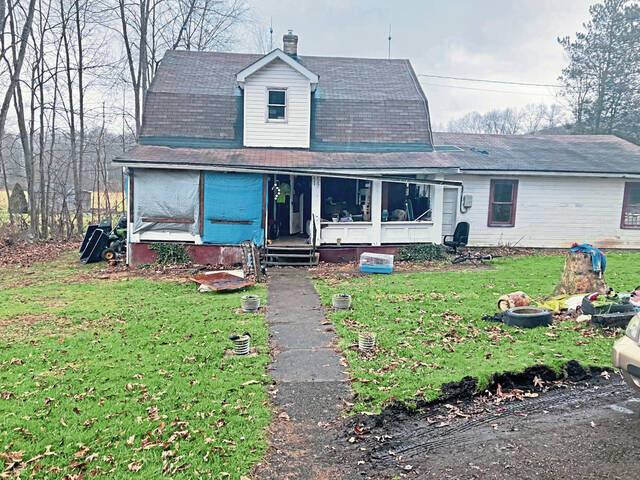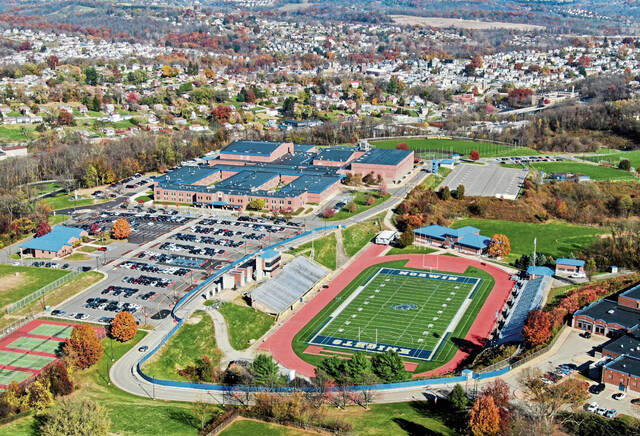There’s a crew working hard to clear underbrush on a woodsy tract at Historic Hanna’s Town, but they’re not your typical 9-to-5ers.
The team comprises 11 goats, and the supervisor is a miniature donkey.
They’re on the scene, courtesy of Allegheny Goatscape and a Laurel Highlands Landscape Conservation Grant, to eat invasive shrubs and other plants.
“Over the past few years, we have worked to expand walking trails through the site, which includes 140 wooded acres in addition to the 40 or so acres where the fort and buildings stand,” said Joanna Moyar, collections manager of Westmoreland Historical Society, which manages the Hempfield historical site. “Eagle Scouts have cut trail into the woods, but the underbrush is so dense and the terrain is so steep it has become difficult to proceed.”
Team Sunshine, named for their guard donkey, arrived May 6 in a pouring rain and quickly got to work. They will be there until June 20, eating their way through a 1½-acre patch — or possibly more — so humans can resume trail-building through the area.
“It allows us to make a significant dent in the understory without using a lot of herbicide,” Moyar said.
That’s the mission of Pittsburgh-based Allegheny Goatscape, partnering with organizations, landowners and businesses to clear overgrown vegetation in an eco-friendly manner and allow for further land management and restoration.
Goats can navigate terrain that is difficult or impossible for people and machinery. They work long hours, fueled by the plants they eat — and fertilizing as they go.
And they aren’t bothered by the thorns or itch-inducing properties of some of the plants they encounter.
Allegheny Goatscape became a nonprofit organization in 2017, transitioning from an organization called Steel City Grazers, which pioneered the use of goats in the region to mitigate unwanted vegetation. The organization has four goat teams, said executive director Gavin Deming.
“The goats and their mini-donkey protector eat about an acre of unwanted vegetation in a two-week space, usually more quickly, and enjoy eating the unwanted plants that are in their space,” Deming said. “Utilizing goats avoids using heavy machinery that might compact or severely disrupt the soil, and is noisy.
Goats are also better than herbicides, because they avoid putting toxins into our shared air, water and ground.”
‘Not a petting zoo’
At Hanna’s Town, the goats are munching their way through invasive shrubs such as multiflora rose, privet, bittersweet, Amur honeysuckle and barberry, which Moyar noted is a prime host for ticks, along with plants such as garlic mustard and buttercup.
The handlers supplement them with bales of hay.
“The big thing is to make sure we keep them hydrated,” Moyar said.
The area in which the goats are grazing is enclosed by an electric fence that can be moved, if needed, as they progress through the understory. They have a tent for shelter in case of rain.
The enclosure is in an area that once was a pasture for the Steel family, who farmed the land beginning in the early 1800s. It contains a marshy area that was once a pond.
Clearing the land and building additional trails is being done to expand recreational opportunities at the site, which also is a Westmoreland County park, Moyar noted.
Each goat has a name and a story, which can be found on the Allegheny Goatscape website. Team Sunshine members include Alpine, Nigerian Dwarf and Nubian goats. Sunshine herself was raised on an Indiana County farm to serve as a companion to children on the autism spectrum.
“The donkey is a guard against predators, primarily coyotes, which we do have out here,” Moyar said.
While the historical society invites people to come and see the goats at work, Moyar said, they should maintain a respectful distance.
“They shouldn’t try to reach through the electric fence to try to touch them or feed them, and get a shock,” she said. “This is not a petting zoo. They’re here to work, and they’re on the clock.”
When Team Sunshine finishes its stint at Hanna’s Town, Deming said, it will move on to eat unwanted vegetation along trails at St. Vincent College’s Winnie Palmer Nature Reserve in Unity.
For more information, call 724-836-1800 or visit westmorelandhistory.org.



